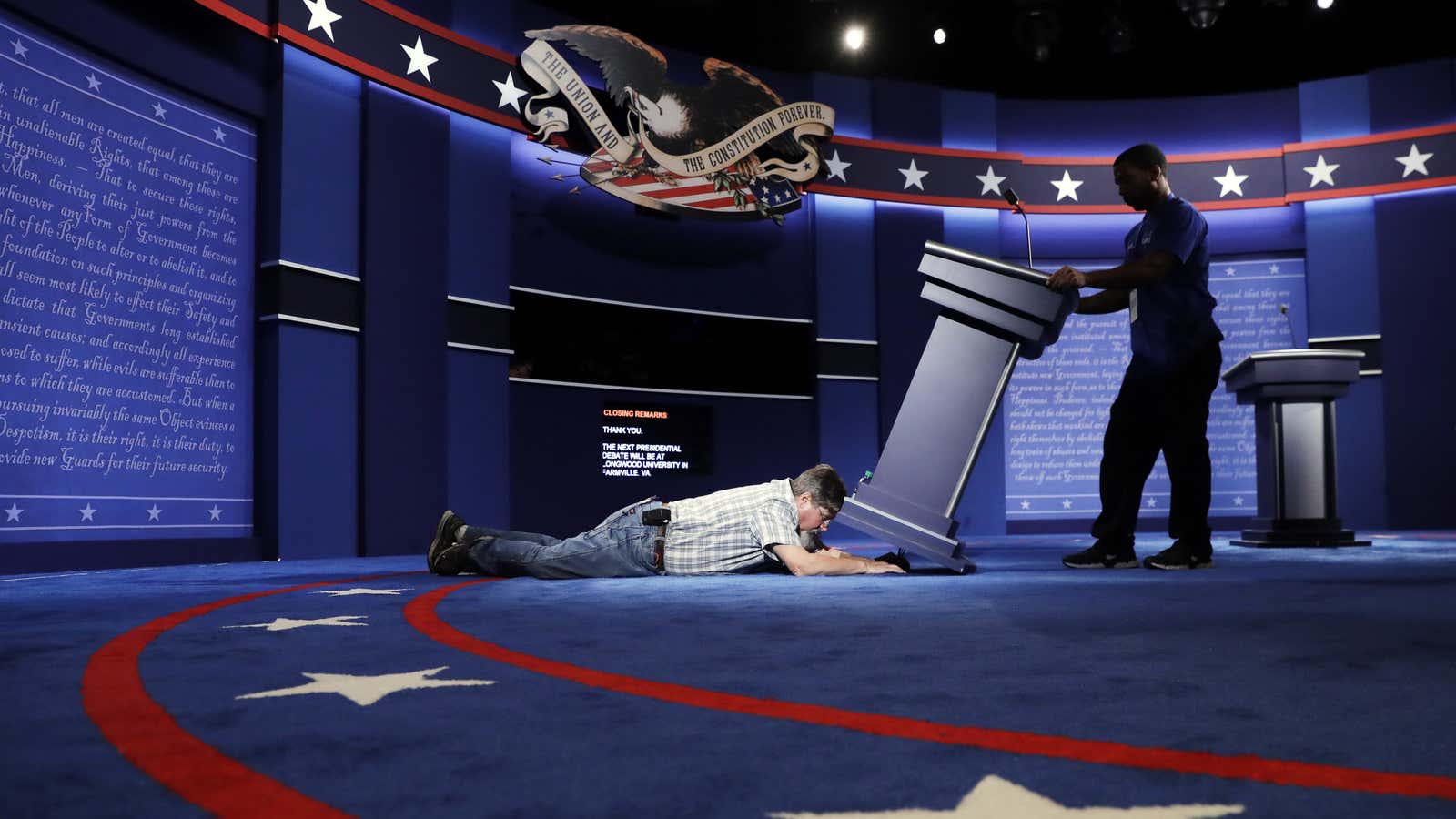Democrat Hillary Clinton and Republican Donald Trump will face off this evening in the first presidential debate of this election. Here are the basics of the event, and the rules that the candidates and debate moderator Lester Holt of NBC will have to follow.
What time does it start?
The debate will start at 9 pm US Eastern time.
How can I watch it?
There are many options, on TV and online. Here is a comprehensive list.
Where is it?
In a lecture hall of Hofstra University, a private college in Hempstead on Long Island, New York, about 30 miles (48 km) east of New York City. The same facility hosted debates between Barack Obama and John McCain in 2008, and Obama and Mitt Romney in 2012.
Who gets to go?
Tickets for the debates are free and given to Hofstra students through a lottery system—a practice adopted by all debate hosts.
Will the live audience be heard?
Unlike the primary debates, audience members won’t be allowed to clap, boo, or laugh. They’re asked to remain silent during the discussion.
Will third-party candidates be there?
No. Candidates need to be polling at 15% or up to participate, regardless of their party affiliation, so none of the hundreds of independent candidates running for president will be at the debate, including the leading third party candidates, Gary Johnson (Libertarian Party) and Jill Stein (Green Party).
Are leading candidates required to take part to the debate?
No.
How long will it go for?
The debate is 90 minutes long.
What will they talk about?
The debate will cover three topics, each for two segments of 15 minutes. The topics, announced last week, are:
- America’s Direction
- Achieving Prosperity
- Securing America
How long does each candidate speak for?
Each topic will be introduced with a question, decided by the host, to which each candidate has two minutes to reply. Then they will, in turn, respond to each other’s words. The host can use any remaining time to ask further questions about the topic.
Will the candidates ask each other direct questions?
No.
Can the candidates sit?
No.
Will the candidates take questions from the audience?
No.
Will there be commercial breaks?
No.
Who pays for it?
All presidential and vice presidential debates are produced and sponsored by the Commission on Presidential Debates (CPD), a non-partisan non-profit established in 1987 to ensure fairness in the debates.
Who sets the rules?
The CPD, which also selects the topic of debates, sharing them with the public at least a week prior to each debate. The CPD is not involved in the parties’ primary debates, so this debate is likely to look quite different from those.
Can candidates negotiate on the rules?
The main rules are unchangeable, but candidates can negotiate details such as who gets to answer first, or whether they will be sitting or standing.
